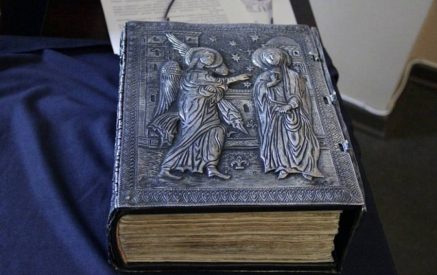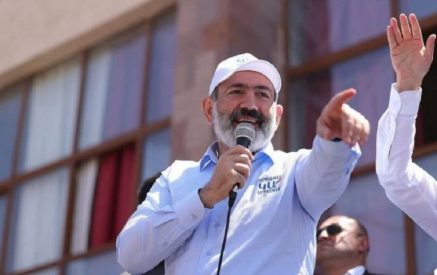The first three chapter (eight in all) I find very helpful and necessary to understand this project. It provides the historic perspective and context for the place of Christianity in this region. I find it fascinating that the Nestorian Church had a significant presence there since the 4th century A.D. Muslim conquerors did not threaten them in the early years, but their threat came mostly from within Christendom, after Nestorius was branded a heretic by the Ecumenical Council ( Ephesus, 431 A.D) and banished. Here is a good example of how “heresies” do not vanish when banished but relocate and flourish somewhere else. For example, it was so with the first “heretic” Arius who went north into the Balkans after the Council of Nicea (325 A.D) and brought Christianity there. The decline of Christianity in the Gulf is traced to the 9th century, mostly due to the dominance of Byzantian theology/dogma (Trinitarian) in the West, and unwillingness or inability to understand and accept it in the East by Muslims and Eastern Christians living there. With the arrival of the Portuguese in 1506 Western European Christianity was introduced in the Gulf region, followed by missionaries. However, violence and indiscriminate killings accompanied their arrival, leaving an indelible mark on the memories of the people, thus changing the image of Christianity from a pacific to a hostile one to this day. However, this negative image was somewhat mitigated by the positive medical and educational work done by British and American missions following.
Today there are hundreds of Christian churches in the area. However, they are composed almost totally of migrant Asian workers (majority being from India). Millions of them have constituted the work force necessary to build the modern cities there. Dr. Jebejian was largely influential in bringing the Bible Society in the Gulf (BSG) to the UAE, and it has played a crucial role in bringing the Gospel to the immigrant people, there, and also in bringing the churches of all denominations together in the common task of bringing to them spiritual enlightenment and support. It is in this regard that he embarked on the project which forms the basis for this book.
The next two chapters deal with the essential core of this book. It is centered in the phrase BIBLE ENGAGEMENT (BE), and describes the process of affecting Christian change. This is done with the objective of “making the Bible discoverable, accessible, and relevant,” with the ultimate goal being that of helping these people regain their identity and personhood in community, centered in the Gospel of Jesus Christ. I had not encountered this term before, having used the phrase “Bible study” always. I like BE much better because it takes one far beyond just study of the Book to the experience of acting out and living out the truths found therein. In this regard the research brought Dr.Jebejian face to face with hundreds of people using a three-pronged approach: The Printed Word; Audiovisual Tools; Storytelling Tools. Limiting his research to those speaking Telegu (South India), he developed a project using three sets of questions in an interview proce s s, including church leaders as one target group, and individual migrants as a second group. Using relevant scripture texts and verses he asked the migrants a series of questions, first, relative to the meaning, of the scriptures, next on how they engaged the scriptures in applying them to their own needs and struggles, and third with how they were nurtured by the scriptures. He then interviewed church leaders relative to their experiences with their people, requesting them to share their stories, and seeking from them ways the Bible Society could be of help to them in designing programs especially for migrants.
The final three chapters are fascinating in that they share the stories and experiences of the interviewees: stories of struggles, faith journeys, and testimonies of lives changed under the impact of the life-changing power of the Holy Spirit. They are moving and a powerful witness to the effective work the Bible Society has been carrying on in the region over these man years.
Read also
In his concluding remarks, Dr. Jebejian seeks to summarize his findings and pass on their implications for future use by the Bible Society and related parties. “No matter how differently the interviewees understood and made meaning of the same text,” he says, “we can see that their lives have been transformed…and the message of hope has made an enormous impact on their lives.” Addressing the Bible Society, he says, “The vast amount of data this research collected urges the BSG to consider some new directions for the BSG to improve, update, and modify its programs.” Right on!
Through this book, Dr. Jebejian has opened for us windows and doors to look and see with new eyes and hearts what God is doing in the Gulf, and with that new awareness to be participants in the grand mission of Christ to the world beyond our immediate selves.
Rev. Dr. Vartkes M. Kassouni,
Orange, CA
December 7, 2019
The reviewer is a retired pastor affiliated with the Presbyterian Church (USA). He has served Armenian Evangelical churches in New York, Fresno and Los Angeles. In his capacity as Associate Executive Presbyter of Los Ranchos Presbytery, he was their new church developer in Southern California. He has also served several churches there as interim pastor. He is the author of two books: POINTS OF LIFE, and POINTED REFLECTIONS. His theological degrees are from New York Theological Seminary, and McCormick Theological Seminary in Chicago. He and his wife Samira reside in Orange, CA.




























































